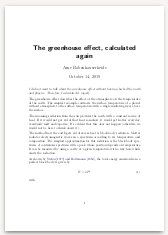Snippets with tipps and tricks for Python
Small Tips & Tricks for Python development. I’ve been programming a lot with Python until 2017 but took a long break. Now I’m more and more stepping in again because I’m using it at work. In this article I gather useful snippets I find along the way.
Also see in English
- 2017: Strengths and weaknesses of Python
- 2017: minimal Python script (a useful skeleton to start with)
- 2015: Real Life Infocalypse (Decentralized DVCS hosting in the Darknet)
- 2015: Freenet Communication Primitives: Part 1, Files and Sites
- 2014: Memory requirement of Python datastructures: numpy array, list of floats and inner array
- 2013: Equal-Area Map Projections with Basemap and matplotlib/pylab
- 2012: Read your python module documentation from emacs
- 2012: Minimal example for literate programming with noweb in emacs org-mode
- 2008: With Python from the Shadows (a song
:-)) - 2007: Python for beginning programmers
Also see in German
- 2016: Warum Python 3? (Kurzfassung, was Python 3 verbesserte, damit ich das in meiner Frustration über seine Volatilität nicht vergesse)
- 2012: Iteratoren als Filter
- 2009: Spiele programmieren (Quellen)
- 2008: Blob Valentine (ein kleines Geschenk)
- 2008: Geschwindigkeitstest - eine Liste summieren, selbstgeschrieben oder mit sum()
- 2008: Blob Schwarm
Doctests in Django
I consider doctests to be one of the most elegant ways to test beautifully self-contained functions with easy to understand input.
But using them in Django is not as straightforward as I expected since the documentation just says “we use unittest”.
That said, using the doctest unittest API just works.
If you have a file at app/utils/strings.py with a function:
def string_postfix_to_number(versioned_name): """Turn a string with a number suffix into the number. >>> string_postfix_to_number("ABC-05") 5 >>> string_postfix_to_number("ABC-09") 9 >>> string_postfix_to_number("ABC-99") 99 """ return int(versioned_name.split("-")[-1])
and your unit test is at app/tests/unit/tests_models.py, just add to tests_models.py:
from django.test import TestCase import unittest import doctest from app.utils import strings def load_tests(loader, tests, ignore): tests.addTests(doctest.DocTestSuite(strings)) return tests class SomeUnitTest(TestCase): pass
Now python3 manage.py test app will execute your doctests.
If you have a logic that needs no setup — i.e. just takes primitive data structures — doctests are the most convenient way to quickly add some tests. Just start writing your tests at the top of your function. I often do it before writing the function body itself and that way Test Driven Development (TDD) becomes a breeze.
I like these so much, that I created doctests for Guile Scheme.
If you need setup or your own classes or you want to test the
interaction between functions, an external test like the
SomeUnitTest in this example is often better, though.
There’s a lot of support in Django for those more complex tests.
Thanks to Adam Johnson for pointing me to the right docs when I ranted on Mastodon about removed doctest support.
